Plenary Speakers
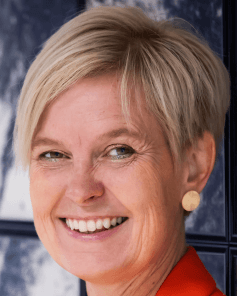
Prof. Sara Bals
EMAT, University of Antwerp, Belgium
Sara Bals was born in Antwerp (Belgium) in 1977 and studied Physics at the University of Antwerp from 1995-1999. She obtained her PhD in 2003 with the greatest distinction and special honours by the jury. From 2003-2004, she did postdoctoral work at the National Center of Electron Microscopy in Berkeley, USA. The focus of her work was the development of electron tomography for materials science. After returning to UAntwerp, she became an Assistant Professor in the Physics Department. In 2018 she was promoted to Full Professor. She is currently the spokesperson of EMAT, consisting of 7 principal investigators, about 25 postdoctoral researchers and more than 30 PhD students. She is also the coordinator of the “Nanolab” Centre of Excellence at the host institution, composed of 6 research groups. Sara Bals is an expert in the application and development of electron tomography for functional nanomaterials. By combining state-of-the-art electron microscopy with advanced 3D reconstruction algorithms, the positions and chemical nature of individual atoms in a nanomaterial are measured. These measurements are now also performed under realistic conditions (heating, liquid or gas flow experiments). She was awarded an ERC Starting Grant in 2012, an ERC Consolidator grant in 2018 and an ERC Proof of Concept Grant in 2023. She received the award “Laureate of the Academy for Natural Sciences” by the Royal Flemish Academy in 2016, became Francqui research professor in 2017 and was elected as member of the Royal Flemish Academy of Belgium for Science and the Arts in 2020. She received the European Microscopy Award in 2020 and the ACS Nano Lectureship award in 2021. She is an elected member of the European Academy of Sciences and the Academia Europaea. Since 2023 she is Associate Editor with ACS Nano.
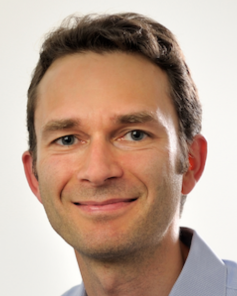
Prof. Marc-André Fortin
CR-CHUQ-Université Laval, Canada
Prof. Marc-André Fortin is the head of the Biomaterials for Imaging laboratory at the Centre Hospitalier Universitaire de Québec (CR-CHU de Québec – Université Laval in Quebec City). He is a full professor at the department of Mining, Metallurgy and Materials Engineering at U. Laval. He is an expert in the field of nanomaterials for diagnosis and imaging of cancer, including for radiosensization therapies. He is also the founder and the manager of CR-CHUN de Qc’s small-animal imaging platform (magnetic resonance imaging, positron emission tomography, and X-ray computed tomography), mainly dedicated to the study of nano(bio)materials pharmacokinetic processes in vivo for acquiring evidence toward regulatory approvals in the biomedical device and pharmaceuticals industries. Dr Fortin graduated with a Ph.D. from Institut National de la Recherche Scientifique – Énergie et Matériaux (INRS-ÉMT – Montréal, Canada), followed by a Postdoc in biomedical imaging at Uppsala and Linköping Universities (Sweden; in biomedical imaging). Dr Fortin received twice a Career Award from the Fonds de la Recherche en Santé du Québec (FRQS Junior 1 and 2; 2008 – 2016). His main research interests include the development of nano(bio)materials for imaging applications, new strategies to image the biodistribution of nanomaterials in vivo, additive manufacturing of biomedical polymers for enhanced visibility in biomedical imaging, as well as novel routes for radioactive nanoparticles synthesis. Dr. Fortin has published more than 75 scientific papers (ACS Nano, Nanoscale, Advanced Materials, Chemistry of Materials, Journal of Controlled Release…), 3 book chapters and 3 reviews in the field of nanomaterials for imaging. He holds several patents on novel nanoparticle synthesis routes by plasma technologies, including effective technology transfers within the precious metals extractive industry. Currently, he holds funding from NSERC, CIHR, CFI, FRQNT, and NRCan. He is a member of the College of Reviewers of the Canadian Institutes of Health (CIHR; Pharmaceutical Sciences panel). At U.Laval since 2007, he lectures on materials analysis, biomedical imaging, and nanotechnology for biomedical applications. He chaired the International Gold Conference 2022 (www.gold2022.org), a scientific platform uniting research in gold-based nanomaterials for high-technology applications.
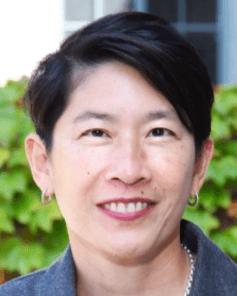
Prof. Teri W. Odom
Northwestern University, USA
Teri W. Odom is the Joan Husting Madden and William H. Madden, Jr. Professor of Chemistry and Chair of the Department of Chemistry at Northwestern University. She earned her BS in Chemistry from Stanford University and her PhD in Chemical Physics from Harvard University. She was an NIH postdoctoral fellow at Harvard before joining the faculty at Northwestern in 2002. Odom is an expert in the design of structured nanoscale materials that exhibit extraordinary size and shape-dependent optical and physical properties.
Odom is a Member of the National Academy of Sciences and the American Academy of Arts and Sciences, is a Fellow of the American Chemical Society (ACS), Royal Society of Chemistry (RSC), American Physical Society, Materials Research Society, American Institute of Medical and Biological Engineering, Optica, and American Association for the Advancement of Science, and is Senior Member of SPIE. Select awards include the SPIE Mozi Award, RSC Centenary Prize, the ACS National Award in Surface Science, a Department of Defense Vannevar Bush Faculty Fellowship, an NIH Director’s Pioneer Award, and a Guggenheim Fellowship. She was the founding chair of the Gordon Research Conference on Noble Metal Nanoparticles and is Editor-in-Chief of Nano Letters.
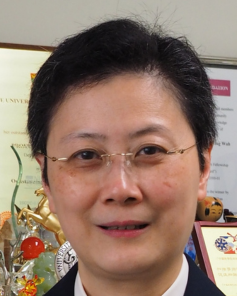
Prof. Vivian Wing Wah Yam
Department of Chemistry, The University of Hong Kong
Vivian W.-W. Yam obtained her BSc (Hons) and PhD from The University of Hong Kong, and is currently the Philip Wong Wilson Wong Professor in Chemistry and Energy and Chair Professor of Chemistry at The University of Hong Kong. She was elected to the Member of Chinese Academy of Sciences, International Member (Foreign Associate) of US National Academy of Sciences, Foreign Member of Academia Europaea, Fellow of TWAS and Founding Member of Hong Kong Academy of Sciences. She was Laureate of the 2011 L’Oréal-UNESCO For Women in Science Award. She has received a number of awards, including the Josef Michl ACS Award in Photochemistry, RSC Centenary Medal, RSC Ludwig Mond Award, Porter Medal, Bailar Medal, I-APS Presidential Award, FACS Foundation Lectureship Award, APA Masuhara Lectureship Award, JPA Honda-Fujishima Lectureship Award, JPA Eikohsha Award, JSCC International Award, State Natural Science Award, CCS-China Petroleum & Chemical Corporation (Sinopec) Chemistry Contribution Prize, CCS Huang Yao- Zeng Organometallic Chemistry Award, etc. Her research interests include inorganic/organometallic chemistry, supramolecular chemistry and controlled assembly of nanostructures, photophysics and photochemistry, and metal-based molecular and nano- assembled functional materials for sensing, organic optoelectronics and energy research.
Also see: https://chemistry.hku.hk/wwyam/
Keynote Speakers
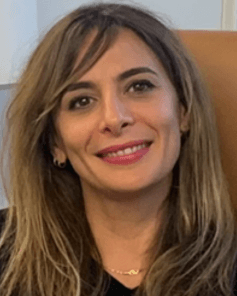
Prof. Souhir Boujday
Sorbonne Université, France
Prof. Souhir Boujday is the chair of the school of Chemistry at Sorbonne University in Paris. She is a full Professor at the Laboratory of Surface Reactivity, where she leads the group NanoBioSurf, which specializes in nanomaterials and surfaces, particularly for applications in biosensing and nanomedicine.
Prof. Boujday began her scientific career in the field of surface chemistry and interfacial reactivity applied to heterogeneous catalysis. She later transitioned to biological applications where she made her mark by applying a molecular-scale approach to surface decoration in the design of efficient and reliable biosensors. Her research encompasses the fundamental aspects of surface functionalization and the self-assembly of molecules at interfaces. This includes the successful biosensing of relevant targets in environmental and food matrices, as well as in body fluids.
She is also expert in the engineering of innovative plasmonic hybrid nanomaterials, which she tailors and customizes in their bulk and surfaces to modulate and enhance their intrinsic properties in line with the targeted application, whether in biosensing or nanomedicine.
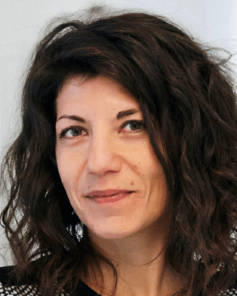
Prof. Raffaella Buonsanti
Swiss Federal Institute of Technology, Switzerland
Professor Raffaella Buonsanti is an Associate Professor in the Department of Chemistry and Chemical Engineering at EPFL. She leads a multidisciplinary research program which spans from nanoscience to materials chemistry and electrocatalysis. She has received an ERC Starting Grant in 2016 and an ERC Consolidator Grant in 2022 in addition to numerous awards, including the Swiss Chemical Society Werner Price in 2021, the European Chemical Society Lecture Award and the Royal Chemical Society ChemComm Emerging Investigator Lectureship in 2019, and the ACS Inorganic Nanoscience Award in 2024. She is also an Associate Editor of ACS Catalysis.
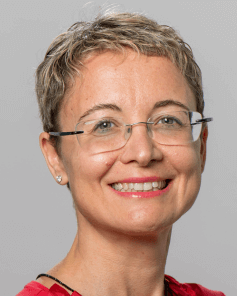
Prof. Angela Casini
Technical University of Munich, Germany
Angela Casini completed her PhD in Chemistry at the University of Florence (Italy) in 2004, and, afterwards, moved to EPFL (Switzerland) as principal investigator funded by the Swiss National Science Foundation (Ambizione program). Between 2011-2015 she was assistant professor at the University of Groningen (The Netherlands), holding a Rosalind Franklin Fellowship. Between 2015-2019, she was also Chair and Director of Postgraduate Taught Masters at Cardiff University (UK), before taking up her current position at TUM in 2019. At TUM, Angela is also Liesel Beckmann Distinguished Professor and Core member of the Munich Institute of Data Science (MDSI), as well as Associated Researcher of the Catalysis Research Center (CRC). Since December 2021, Angela is ad interim manager (kommissarischen Leiterin) of the Chair of Pharmaceutical Radiochemistry at TUM. Her research focuses on the study of the role of metal ions in biological systems and of the mechanisms of action of organometallic anticancer agents. Furthermore, novel applications for metal-based compounds and supramolecular coordination complexes are explored in various domains of chemical biology, radiochemistry, drug delivery and medicine. In these fields, she has authored more than 280 publications (including 12 book chapters) with an H index of 75. She was awarded the 2019 ACS Inorganic Lectureship Award and the 2012 European Medal for Biological Inorganic Chemistry. Between 2016-2019 she was Hans Fischer Senior Fellow of the prestigious TUM Institute of Advanced Study. Angela was also invited to give named lectures, including the 36th H. Martin Friedman Lecture in 2021 at Brooklyn College of The City University of New York, and the 2019 TGH Jones Memorial Lecture at the University of Queensland. Recently, she has been elected member of the European Academy of Sciences. Since 2021, in the search for novel supramolecular inorganic materials, she coordinates the 4-year TUM Innovation Network “Artificial Intelligence Powered Multifunctional Materials Design” (ARTEMIS). The network focuses on using machine learning to develop novel materials for energy research and regenerative medicine. Since 2024, she coordinates the EIC Path Finder open project titled “Supramolecular Agents as Radiotheranostic Drugs (SMARTDrugs).
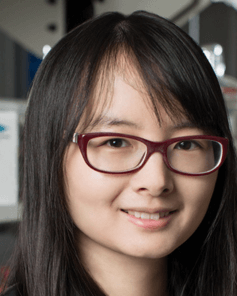
Prof. Qian Chen
University of Illinois, USA
Prof. Qian Chen is currently an associate professor and Racheff Scholar in the Department of Materials Science and Engineering at the University of Illinois at Urbana-Champaign. She obtained her PhD degree from the same department with Prof. Steve Granick (2012) and completed her postdoctoral research with Prof. Paul Alivisatos at the University of California, Berkeley, under a Miller Fellowship. She became a faculty member in 2015 and since then has received awards for her group’s research, such as the Forbes 30 under 30 Science List (2016), the AFOSR YIP (2017), the NSF CAREER award (2018), the Sloan Fellow in Chemistry (2018), the ACS Unilever Award (2018), the Hanwha-TotalEnergies IUPAC Young Scientist Award (2022), the Soft Matter Lectureship (2023), the Provost’s Award for Excellence in Graduate Student Mentoring (2024), and the MRS Outstanding Early-Career Investigator Award (2024). Her group’s research focuses on imaging, understanding, and engineering soft, biological, and energy materials at the nanoscale.
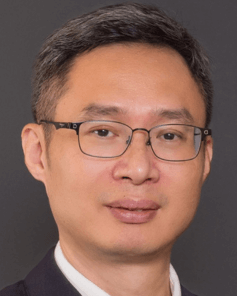
Prof. Xiaodong Chen
Nanyang Technological University, Singapore
Professor Xiaodong Chen holds the President’s Chair Professorship in Materials Science and Engineering at Nanyang Technological University (NTU), Singapore, with courtesy appointments in both Chemistry and Medicine. His research interests span mechanomaterials science and engineering, flexible electronics technology, sense digitalization, cyber-human interfaces and systems, and carbon-negative technology. Prof. Chen’s outstanding scientific contributions have been recognized with numerous awards, including the Singapore President’s Science Award, Singapore National Research Foundation (NRF) Investigatorship and NRF Fellowship, the Friedrich Wilhelm Bessel Research Award, Dan Maydan Prize in Nanoscience and Nanotechnology, Winner of Falling Walls, and Kabiller Young Investigator. He is an elected member of the Singapore National Academy of Science, the Academy of Engineering Singapore, and the German National Academy of Sciences Leopoldina, and an elected fellow of the Royal Society of Chemistry, the Chinese Chemical Society, and the American Institute for Medical and Biological Engineering (AIMBE). Prof. Chen also serves on the editorial advisory boards of numerous esteemed international journals, including Advanced Materials, Small, andNanoscale Horizons. Currently, he is the Editor-in-Chief of ACS Nano, a flagship journal in nanoscience and nanotechnology.
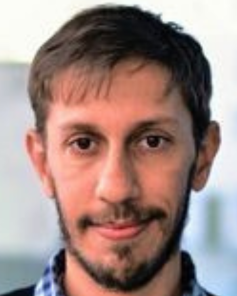
Prof. Emiliano Cortés
Ludwig Maximilian University of Munich, Germany
Emiliano is Professor in Experimental Physics and Energy Conversion at the Faculty of Physics, University of Munich (LMU), Germany and he is the academic lead of the Nanomaterials for Energy group. He is also a visiting researcher at the Materials Departments of both Tianjin University, China and Imperial College London, UK. His research interests lie at the interface between chemistry and physics, and focus on the development of novel nanomaterials and techniques, specifically for applications in energy conversion. He has published over 120 scientific articles, 4 patents and co-edited the first book in Plasmonic Catalysis (Wiley, June 2021). He has been awarded by the European Commission several times, initially as Marie-Skłodowska-Curie research fellow at Imperial College London and later at LMU with ERC Grants for his projects CATALIGHT and SURFLIGHT. In 2021, the Royal Society of Chemistry in the UK awarded him as Emerging Investigator in Materials Science. He is currently a PI of the German excellence research cluster e-conversion and coordinator of its graduate program, scientific board member in the Center for NanoScience (CeNS) in Munich, member of the Bavarian program Solar Technologies go Hybrid (SolTech), and fellow of the Young Academy of Europe (YAE). Since 2024, Emiliano has been elected as external Associate Researcher at the TUM Catalysis Research Center (CRC) in Munich.
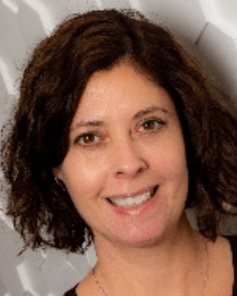
Prof. Christy Landes
University of Illinois, USA
Christy F. Landes is the Jerry A. Walker Endowed Chair in Chemistry at the University of Illinois at Urbana-Champaign. Prior to joining UIUC, she was the Kenneth S. Pitzer-Schlumberger Professor of Chemistry at Rice University with appointments in Electrical & Computer Engineering and Chemical & Biomolecular Engineering. She earned her BS from George Mason University in 1998 and completed a Ph.D. in Physical Chemistry at the Georgia Institute of Technology in 2003 under the direction of Mostafa El-Sayed. She was a postdoctoral researcher at the University of Oregon and an NIH postdoctoral fellow at the University of Texas at Austin under the direction of Geraldine Richmond and Paul Barbara, respectively.
Christy is the Director of the NSF Phase I Center for Adopting Flaws as Features. She is the 2024 Past-Chair of the Physical Chemistry Division of the American Chemical Society. She is a senior editor of the Journal of Physical Chemistry Letters and serves on the Editorial Advisory Boards of ACS Nano and Accounts of Chemical Research. She is a Fellow of the Kavli Foundation, the American Chemical Society, and the American Association for the Advancement of Science. Her awards include the ACS Early-Career Award in Experimental Physical Chemistry, the Langmuir Lectureship, and the Kinosita Award in Single-Molecule Biophysics.
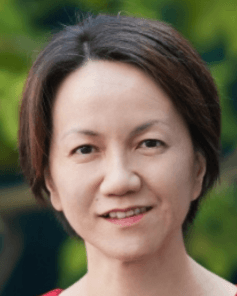
Prof. Xing Yi Ling
Nanyang Technological University, Singapore
Xing Yi Ling is a Professor in Chemistry from Nanyang Technological University, Singapore. She received her Ph.D. degree in Chemistry from University of Twente, the Netherlands in 2009, and her postdoctoral research at the University of California, Berkeley between 2009-2011. She joined Chemistry and Biological Chemistry division at Nanyang Technological University in 2011, where she was promoted to professor in 2021. Xing Yi is a Fellow of The Royal Society of Chemistry, and has received Singapore National Research Foundation Investigatorship, Nanyang Award for Innovation & Entrepreneurship, L’ORÉAL Singapore for Women in Science National Fellowship, Singapore National Research Foundation Fellowship, IUPAC Prize for Young Chemists, and others. Xing Yi holds the Editor-in-Chief position of the ACS Applied Materials & Interfaces and Applied Materials portfolio, which is a family of eight journals focused on materials, interfacial processes, and their applications. She is currently in the editorial boards of Angewandte Chemie, Chemistry of Materials, Nanoscale Horizons, Cell Reports Physical Science, ChemPlusChem. Her research focuses in using nanotechnology for fundamental studies and applications in environmental, healthcare, and catalysis fields. In particular, she is interested in self-assembling shape-controlled noble metal nanoparticles into superlattices to impart new structure-to-function properties and applications in surface-enhanced Raman scattering (SERS).
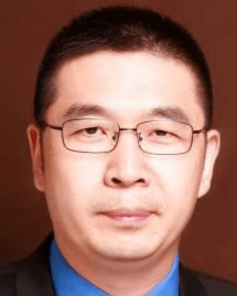
Prof. Sijin Liu
Chinese Academy of Sciences, China
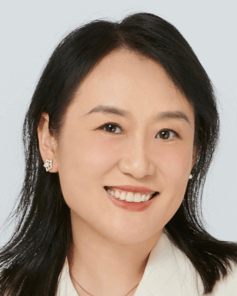
Prof. Laura Na Liu
University of Stuttgart, Germany
Prof. Laura Na Liu received her Ph.D in Physics at the University of Stuttgart, Germany. She then worked as a postdoctoral fellow at the University of California, Berkeley and as a Texas Instruments visiting professor at Rice University, respectively. Before she became a professor at the Kirchhoff Institute for Physics at the University of Heidelberg in 2015, she worked as an independent group leader at the Max-Planck Institute for Intelligent Systems. In 2020, she joined University of Stuttgart and became the Director of the 2. Physics Institute.
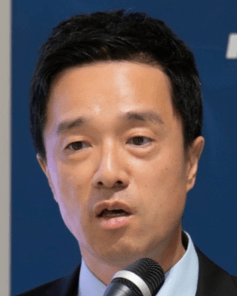
Prof. Jwa-Min Nam
Seoul National University, South Korea
Jwa-Min Nam received his Ph.D. degree in chemistry from Northwestern University (Chad Mirkin & Mark Ratner) (2004) and worked as a postdoctoral fellow at the University of California, Berkeley (Jay Groves) (2004-2005). Dr. Nam started his independent career as an assistant professor at the Department of Chemistry, Seoul National University in 2006. He is currently a full professor in chemistry and an adjunct professor in biological sciences at Seoul National University. He is serving as the Vice Dean (Planning & Public Relations) of the College of Natural Sciences, Seoul National University, and was a Vice Chair of the Department of Chemistry, Seoul National University (2019-2021). He has been elected as a Fellow of the Korean Academy of Science and Technology (KAST) (2024). He is a member of Global R&D Special Committee, the Presidential Advisory Council on Science and Technology, and was a member of Samsung Electronics Future Technology Committee (2019-2021). Jwa-Min Nam has won many awards including Collegiate Inventors Award, National Inventors Hall of Fame, USA & USPTO (2004), Victor K. LaMer Award from the American Chemical Society (2006), Outstanding Research Achievement Award, Ministry of Edu., Sci. & Tech., Republic of Korea (2010), Presidential Young Scientist Award, President of the Republic of Korea (2012), Distinguished Lectureship Award, Chemical Society of Japan (2013), Minister’s Basic Research Award from the Ministry of Science and ICT, Republic of Korea (2017), S-OIL Outstanding Thesis Advisor Award (2019), SNU Excellence in Research Award, the President of Seoul National University (2021), Outstanding Researcher Award from the Inorganic Chemistry Division, the Korean Chemical Society (2022) and the Basic Science Award, the Ministry of Science and ICT, South Korea (2022). He served as an Associate Editor (2020-2023) and is currently an Executive Editor of Nano Letters (ACS Publications). He is also on the editorial advisory boards of ACS Central Science (ACS Publications), Accounts of Chemical Research (ACS Publications), Small Methods (Wiley-VCH), Particle & Particle Systems Characterization (Wiley-VCH), ChemNanoMat (Wiley-VCH), Sensors and Diagnostics (RSC) and Journal of Nanobiotechnology. Jwa-Min’s research interests include plasmonic nanoparticles, surface-enhanced spectroscopy, nanobiosensors, nanobiocomputing, nanomachines and nanoparticle-based therapeutics.
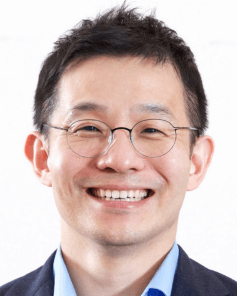
Prof. Ki Tae Nam
Seoul National University, South Korea
Professor Ki Tae Nam received his B.S. and M.S. in Materials Science and Engineering from Seoul National University, and his Ph.D. in Materials Science and Engineering from Massachusetts Institute of Technology. He got the “Outstanding PhD thesis award” from MIT. His PhD thesis was about the “virus-based battery” (Science 2007) that has been highlighted as the first demonstration of virus-based electrochemical devices. During his postdoc (2007-2010) at Lawrence Berkeley National Lab, he studied peptide mimetic polymers to assemble two dimensional structures (Nature Materials 2010). Since 2010, His group at SNU continues to pioneer the research area of bioinspired materials science to make new functional materials for energy and optical applications. Recently, his group is pioneering a new method to synthesize uniform chiral nanoparticles using peptides and amino acids (Nature 2017 and Nature 2022). In 2022, He received the POSCO Chung-Am Award, which is one of the most prestigious awards in Korea.
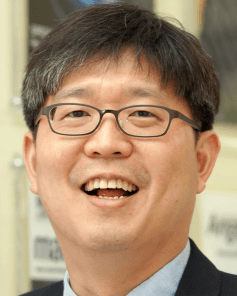
Prof. Junsuk Rho
Pohang University of Science and Technology (POSTECH), South Korea
Prof. Rho is a Mu-Eun-Jae (无垠斋) Endowed Chair Professor at Pohang University of Science and Technology (POSTECH), Korea, with a joint appointment in the Departments of Chemical Engineering/Mechanical Engineering/Electrical Engineering. He received his Ph.D. at the University of California, Berkeley (2013), M.S. at the University of Illinois, Urbana-Champaign (2008) and B.S. at Seoul National University, Korea (2007) all in Mechanical Engineering. Prior joining POSTECH, he conducted postdoctoral research in Materials Sciences Division & Molecular Foundry at Lawrence Berkeley National Laboratory, and also worked as a principal investigator (Ugo Fano fellow) in Nanoscience and Technology Division & the Center for Nanoscale Materials at Argonne National Laboratory. Prof. Rho has authored and co-authored more than 300 high-impact journal papers including Science and Nature. He is also the recipients of several notable honors and awards such as U.S Department of Energy Argonne Named fellowship (2014), Korean Presidential Early Career Award for Scientists and Engineers (2019), Fulbright Visiting Scholar Fellowship (2022), Northwestern Simpson Fellowship (2022), Northwestern Eshbach Fellowship (2023), Clarivate Highly Cited Researcher (2023). He serves 13 editorial positions including Light: Science and Applications (Springer-Nature), Microsystems and Nanoengineering (Springer-Nature), npj Nanophotonics (Springer-Nature) and Nanophotonics (De Gruyter).
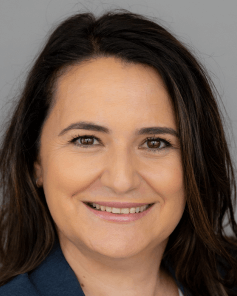
Prof. Liane Rossi
Institute of Chemistry, University of São Paulo, Brazil
Liane M. Rossi holds a B.S. degree in Chemical Engineering (UFRGS, Brazil, 1994) and a Ph.D degree in Chemistry (UFSC, Brazil, 2001). After postdoctoral research experience in Brazil and the USA, in 2004, she joined the Institute of Chemistry at the University of São Paulo (USP) and became a Full Professor in 2016. She currently serves as Coordinator of the CCU Program at the Research Centre for Greenhouse Gas Innovation (RCGI), sponsored by FAPESP/SHELL/USP (São Paulo, Brazil). Prof. Rossi is a permanent member of the Brazilian Academy of Science, effective since January 2021. She is an Editorial Advisory Board Member at ACS Catalysis (American Chemical Society) and Chemistry Select (ChemPubSoc and Wiley), and an International Advisory Board at Angewandte Chemie. She is a member of the Brazilian Chemical Society (SBQ), Brazilian Catalysis Society (SBCAT), and American Chemical Society (ACS). She is the author or co-author of about 150 papers published in indexed peer-reviewed scientific journals which received 7200 citations and an H=47. Prof. Rossi has been awarded the King Carl XVI Gustafs professorship in Environmental Science (Konung Carl XVI Gustafs professur i miljövetenskap) for 2023/24. Her research interests in the field of chemistry and catalysis include metal nanoparticle catalyst design, preparation and characterization. In the field of gold catalysis, she has studied the reactivity patterns at gold-ligands interfaces, bimetallic and hybrid catalysts for selective transformations. The main catalytic processes currently under study are selective hydrogenations and oxidations, biomass conversion into chemicals, and CO2 capture and conversion.
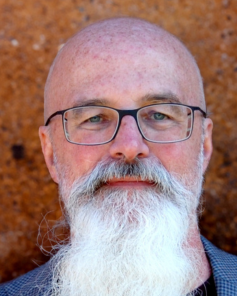
Prof. Vincent Rotello
University of Massachusetts Amherst, USA
Vincent Rotello is the Charles A. Goessmann Professor of Chemistry and a University Distinguished Professor at the University of Massachusetts at Amherst. He received his B.S. in Chemistry in 1985 from Illinois Institute of Technology, and his Ph. D. in Chemistry in 1990 from Yale University. He was an NSF postdoctoral fellow at Massachusetts Institute of Technology from 1990-1993, and joined the faculty at the University of Massachusetts in 1993. He has been the recipient of the NSF CAREER and Cottrell Scholar awards, as well as the Camille Dreyfus Teacher-Scholar, the Sloan Fellowship. He has received the Arthur C. Cope Scholar Award in 2023, in 2016 he was awarded the Transformational Research and Excellence in Education Award presented by Research Corporation, the Bioorganic Lectureship from the Royal Society of Chemistry (UK), the Australian Nanotechnology Network Traveling Fellowship, the Chinese Academy of Sciences President’s International Fellowship for Distinguished Researchers. (2016) and the Langmuir Lectureship (2010). He is a Fellow of both the American Association for the Advancement of Science (AAAS) and of the Royal Society of Chemistry (U.K.). He is also recognized in 2014, 2015, 2018-2023 by Thomson Reuters/Clarivate as “Highly Cited Researcher” His research program focuses on using synthetic organic chemistry to engineer the interface between the synthetic and biological worlds, and spans the areas of devices, polymers, and nanotechnology/bionanotechnology, with over 650 peer-reviewed papers published to date. He is actively involved in the area of bionanotechnology, and his research includes programs in delivery, imaging, diagnostics and nanotoxicology.
Email:rotello@chem.umass.edu
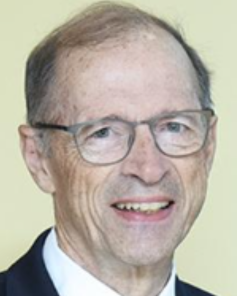
Prof. George C. Schatz
Northwestern University, USA
George C. Schatz is Charles E. and Emma H. Morrison Professor of Chemistry at Northwestern University. He received his undergraduate degree in chemistry at Clarkson University and a Ph.D at Caltech. He was a postdoc at MIT, and has been at Northwestern since 1976. Schatz is a theoretician who studies the optical, structural and thermal properties of nanomaterials, including plasmonic nanoparticles, plasmonic metamaterials, DNA and peptide nanostructures, and transition metal dichalcogenides. He has contributed to theories of dynamical processes, including gas phase and gas/surface reactions, energy transfer processes, quantum science, transport phenomena and photochemistry. Schatz has published four books and over 1,700 papers. Schatz is a member of the National Academy of Sciences, and the American Academy of Arts and Sciences. He has received numerous awards, including the Debye, Langmuir and Marsha Lester Awards of the ACS, and the Bourke and Boys-Rahman Award of the Royal Society of Chemistry, and the Materials Theory Award of the MRS. He is a Fellow of the American Physical Society, the Royal Society of Chemistry, the American Chemical Society and of the AAAS.
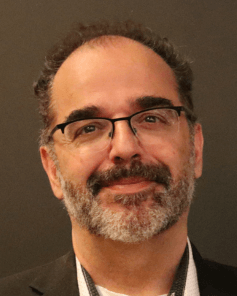
Prof. F. Dean Toste
University of California, Bekerley, USA
Prof. F. Dean Toste was born in Terceira, Azores, Portugal but soon moved to Toronto Canada where he graduated with a B.Sc. (1993) and M.Sc. (1995) from the University of Toronto. He completed his PhD at Stanford University (2000) under the guidance of Professor Barry M. Trost. After a postdoctoral appointment with Professor Robert H. Grubbs at the California Institute of Technology, he took a position as an Assistant Professor of Chemistry at the University of California, Berkeley in 2002, where he is currently Gerald K. Branch Distinguished Professor of Chemistry and Joel H. Hildebrand Distinguished Professor and Chair of the Department of Chemistry. Toste’s honors include the Janssen, BASF and Mitsui Awards; the OMCOS Award and Thieme-IUPAC Prize from IUPAC; the Nobel Laureate Signature, Cope Scholar, E.J. Corey Awards from the American Chemical Society; the Merck Award from the Royal Society of Chemistry; the Mukaiyama Award from the Society of Synthetic Organic Chemistry Japan and the Horst-Parcejus Prize from the German Chemical Society. He is an elected fellow of the Royal Society of Canada – Academy of Science, the United States National Academy of Science and the American Academy of Arts and Sciences.
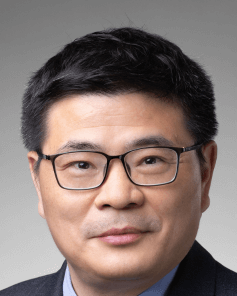
Prof. Jianfang Wang
Department of Physics, The Chinese University of Hong Kong
Jianfang Wang obtained his B.S. degree in inorganic chemistry and software design in 1993 from University of Science and Technology of China, his M.S. degree in inorganic chemistry in 1996 from Peking University, and his Ph.D degree in physical chemistry in 2002 from Harvard University. He did postdoctoral study at the University of California, Santa Barbara from 2002 to 2005. In 2005, he joined Department of Physics at The Chinese University of Hong Kong (CUHK) as an assistant professor. He became an associate professor in 2011 and a full professor in 2015. He was the Assistant Dean of the Faculty of Science at CUHK from August 2015 to July 2021 and has been the Chairperson of the Department of Physics of CUHK since August 2021. His current research interests are nanoplasmonics, nanophotonics, and photocatalysis.
INVITED Speakers
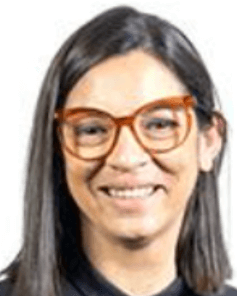
Dr. Neus Bastús
Institut Català de Nanotecnologia (ICN2), Spain
Neus G. Bastús obtained her Ph.D. in Physics from the Universitat de Barcelona, focusing on the synthesis and functionalization of metal nanoparticles for biomedical applications. In January 2009, she joined the physical chemistry department at the University of Hamburg in Prof. Weller’s group, where she expanded her expertise in material design to include the synthesis and study of the properties of complex metal-semiconductor systems. In 2011, she was awarded a Juan de la Cierva postdoctoral fellowship and became a member of the Inorganic Nanoparticles Group at ICN2. By 2013, she received a Ramón y Cajal Fellowship, marking the start of her senior career. She is currently a tenured scientist (Investigador Científico, CSIC) at ICN2, where she develops aqueous-based synthetic methods to produce nanoscale materials with precisely defined morphology, structure, and architecture, with a particular focus on hollow and hybrid systems. Her research encompasses the production and characterization of these materials for the study of their properties and their applicability in health, energy science, and environment.
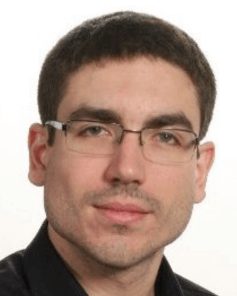
Dr. Lucas V. Besteiro
University of Vigo, Spain
Lucas V. Besteiro got his PhD at Universidade de Santiago de Compostela, using first-principles computational models to study the effect of quantum confinement in semiconductor quantum dots. Afterwards, he pivoted his research towards the theoretical study of plasmonic nanostructures, working as a postdoc in Ohio University (USA), in the Institute of Fundamental and Frontier Sciences (UESTC, China), and in the Énergie, Matériaux et Télécommunications Research Centre (INRS, Canada). He currently holds a Ramón y Cajal Fellowship at CINBIO, in Universidade de Vigo. His research interests lie at the interface between theoretical nanophotonics, material science and chemistry, and he currently focuses on studying theoretical aspects of plasmonic photocatalysis.
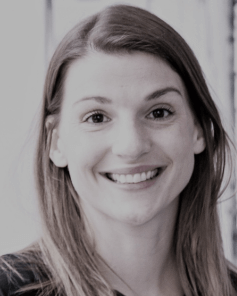
Prof. Elodie Boisselier
Université Laval, Canada
Dr. Elodie Boisselier received her PhD from Université de Bordeaux (France) in 2009 during which she synthesized and functionalized gold nanoparticles and dendrimers for biomedical applications. She then completed a postdoctoral training at Université Laval (Canada) where she studied the biophysical behavior of membrane proteins involved in ocular diseases. She joined the Ophthalmology and Otolaryngology /Head and Neck Surgery Department in 2014 as an Assistant Professor and is now Full Professor in the same department. She has developed an extensive expertise in synthesis, functionalization, stabilization and encapsulation of gold nanoparticles, and her group is currently developing new delivery systems based on gold nanoparticles for ophthalmic drugs. She is the co-holder of 3 patents that address concrete problems encountered by manufacturers. Her research group also studies how different properties of phospholipids affect the binding of various proteins in the eye.
Dr. Robert Black
National Research Council of Canada, Canada
Dr. Robert W. Black is a Research Officer and Team Leader at the National Research Council of Canada, Clean Energy Innovation Research Center, specializing in materials science and accelerated materials discovery for clean energy materials. He holds a PhD in Chemical Engineering (Nanotechnology) from the University of Waterloo and a BASc in Nanotechnology Engineering. Robert has extensive experience in advanced materials research, having worked in industry as a product development scientist for energy storage materials, and now focusing on the integration self-driving laboratories, AI-driven optimization, and high-throughput experimentation to advance green energy materials and sustainable catalysis under his current role. His work spans hydrogen, CCUS, and battery technologies, and in-situ characterization techniques, contributing to over 30 publications and several patents. As an adjunct professor and an active member of various international research consortia focused on accelerated discovery and process optimization, he fosters collaborations between academia and industry to bridge the gap between fundamental research and practical applications. Dr. Black’s work emphasizes the use of AI and automation to accelerate discovery while addressing critical energy and environmental challenges.
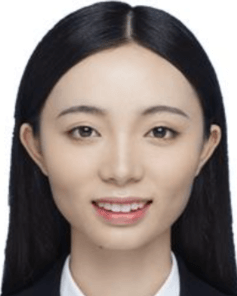
Dr. Jiaqi Chen
Chengdu University, China
Dr. Jiaqi Chen received her Ph.D degree in Materials Science from the National Center for Nanoscience and Technology in 2020. Since December 1st, she has joined the Department of Materials Engineering, School of Mechanical Engineering, Chengdu University as an associate professor. Her research interests include the thiolated ligands-regulated synthesis, mechanistic investigation, the optical and catalytic properties, and the related applications in biosensor of chiral plasmonic nanomaterials.
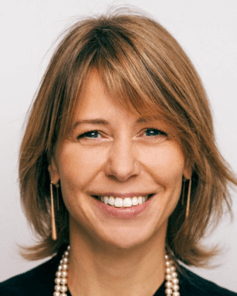
Prof. Laura Fabris
Politecnico di Torino, Italy
Laura Fabris received her B.S./M.S. degree in Chemistry in 2001 from the University of Padova (Italy), where she was also awarded a Ph.D. in 2006. She was then a postdoc at the University of California Santa Barbara. In 2009 she moved to Rutgers University in the Department of Materials Science and Engineering where she remained as Associate Professor until 2021. In June 2021, she was appointed Full Professor at the Polytechnic University of Turin in the Department of Applied Science and Technology. Her research combines fundamental notions of nanomaterials chemistry and spectroscopy for the development of new technologies addressing important challenges in medicine, biology, and energy.
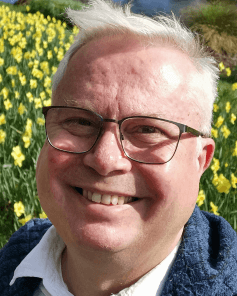
Dr. Vladimir Golovko
University of Canterbury, New Zealand
Vladimir Golovko received his M.S. degree in Chemistry in 1996 from the Taras Shevchenko National University of Kyiv, Ukraine in 1996. In 2003 he graduated with a PhD in organometallic chemistry from the University of Cambridge, UK. This was followed by a postdoc, also at Cambridge, with Professor Brian F.G. Johnson FRS, during which time Vladimir developed his passion for nanotechnology and catalysis. He moved to the Department of Chemistry at the University of Canterbury, Christchurch, New Zealand in 2007 (currently an Associate Professor). His current research is focused on the synthesis, characterisation and detailed studies (including using synchrotron-based techniques) of the novel, precisely structured nanomaterials for applications in catalysts, energy and sensing.
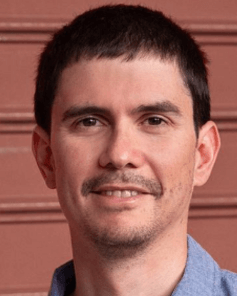
Dr. Guillermo González-Rubio
Universidad Complutense de Madrid, Spain
Dr. González-Rubio studied Chemistry at the Complutense University (UCM) of Madrid, where he obtained his PhD in 2017 under the guidance of Prof. Luis Liz-Marzán (CIC biomaGUNE) and Prof. Andrés Guerrero-Martínez (UCM). His postdoctoral studies were conducted at the University of Konstanz under the mentorship of Prof. Helmut Cölfen, supported by a research fellowship from the Alexander von Humboldt Foundation. He currently holds a position at UCM as an Atracción de Talento Fellow. His research interests focus on the design of functional surface ligands and the development of colloidal routes utilizing ultrafast pulsed laser irradiation to synthesize, stabilize, and assemble high-quality NCs for optical and catalytic applications.
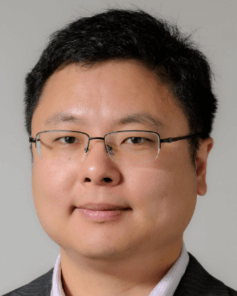
Dr. Jie He
University of Connecticut, USA
Jie He is currently a Professor of Chemistry and Polymer Program at the University of Connecticut. His group focuses on the design of hybrid materials of polymers and inorganic materials (metal ions, clusters, and nanoparticles) being capable of catalyzing the activation of small molecules as inspired by nature.
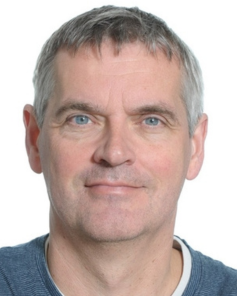
Prof. Johan Hofkens
KULeuven, Department of Chemistry & MPI Mainz, Belgium
Johan Hofkens received his MSc. (1988) and Ph.D. degree (1993) in Chemistry from the University of Leuven (KULeuven). After postdoctoral research with Prof. Masuhara at Osaka University (1994-1995) and Prof. Barbara at the University of Minneapolis (1996), he rejoined KULeuven, establishing the Single Molecule Laboratory. In 2005 he was appointed Research Professor at KULeuven and in 2008 he was promoted to full professor. His research interests are single molecule spectroscopy & fluorescence microscopy, the development of new microscopy modes and application of these microscopy modalities in biological and materials research. He currently holds a fellow position in the MPI Mainz. Prof. Hofkens is a senior editor for ACS and serves on editorial boards of multiple journals. He has published more than 600 journal research papers, resulting in over 42000 citations and an h-index of 112 (Google Scholar). He is an elected Member of the Flemish Academy of Science, of the European Academy of Science, and of Academia Europaea. He received several awards including the Grammaticakis Neumann award in Photochemistry, the Morino Lecturer award and the Otto Wolfbeis Fluorescence Prize. His research group has been focusing since its start on the development and implementation of new spectroscopy and microscopy techniques. Hofkens’ research goes beyond the development of instrumentation for the sake of developing it: new instrumentation is developed with the goal of getting insight into the function of (bio)molecules and (bio)materials.
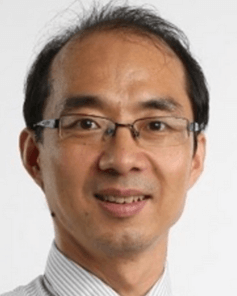
Dr. Shuzhou Li
Nanyang Technological University, Singapore
Dr. Shuzhou Li received his B.Sc, M.Sc, and PhD in chemistry from Nankai University, Peking University, and University of Wisconsin, respectively. After working as a postdoc in Northwestern University, he joined in Nanyang Technological University. Currently, he is an associate professor in school of materials science and engineering and his research interests are theoretical and computational material science. He has been focused on (1) Heterogeneous Catalysis; (2) Artificial Intelligence for Materials Discovery; (3) Flexible Electronics.
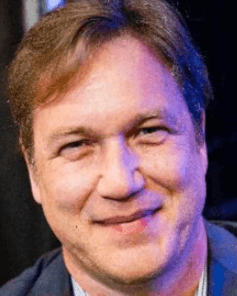
Prof. Stephan Link
University of Illinois Urbana-Champaign, USA
Stephan Link is the Charles W. and Genevieve M. Walton Professor of Chemistry at the University of Illinois Urbana-Champaign. Stephan received a Diplom of Chemistry in 1996 from the Technical University of Braunschweig in Germany, followed by graduate work at the Georgia Institute of Technology under the supervision of Professor Mostafa El-Sayed and postdoctoral research at the University of Texas at Austin, where he worked with Professor Paul Barbara. In 2006, Stephan started his independent academic career in the Chemistry Department at Rice University. He was promoted to associate professor in 2013, full professor in 2017, and to the Charles W. Duncan, Jr.-Welch Chair in Chemistry in 2021. In 2024, he moved to the University of Illinois Urbana-Champaign, where he holds appointments in Chemistry and Electrical and Computer Engineering. Stephan’s research is focused on understanding the effects of heterogeneity on the collective opto-electronic properties of complex photonic nanostructures consisting of metallic nanoparticles coupled to each other as well as to soft molecular or inorganic interfaces. Stephan has published over 200 papers receiving >40,000 citation. His awards include an NSF CAREER Award and the Norman Hackerman Award in Chemical Research from by the Robert A. Welch Foundation. Stephan also currently serves as a Senior Editor for The Journal of Physical Chemistry.
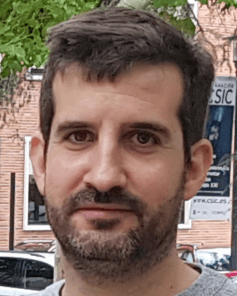
Dr. Alejandro Manjavacas
CSIC, Spain
Alejandro Manjavacas received his M.S. and Ph.D degrees from Universidad Complutense de Madrid in 2009 and 2013, respectively, working under the supervision of Prof. García de Abajo. After completing his Ph.D., he moved to Rice University in 2013 as the J. Evans Attwell Welch postdoctoral fellow working in the group of Prof. Peter Nordlander. In the summer of 2015, Alejandro obtained a tenure-track position as Assistant Professor at the University of New Mexico (USA) and was later promoted to Associate Professor with tenure. In 2020, he became a Tenured Scientist at the Institute of Optics of the Spanish National Research Council, and was later promoted to Senior Scientist in the Institute of Chemical Physics. Dr. Manjavacas is the recipient of several awards including the RSEF-BBVA Foundation award to the Best Young Theoretical Physicist in Spain, the NSF Career Award from the US, the Leonardo Grant from the BBVA Foundation, and the Miguel Catalan Award to the Best Scientist under 40. The focus of his research is to understand the fundamentals of the light-matter interaction at the nanoscale. He has co-authored more than 90 articles and reached over 7,500 citations with a h-index of 38 (Google Scholar).
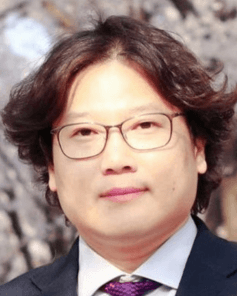
Dr. Kyoung-Duck Park
POSTECH, South Korea
Dr. Kyoung-Duck Park is an Associate Professor in the Department of Physics at Pohang University of Science and Technology (POSTECH), South Korea. He earned his Ph.D. from the University of Colorado at Boulder in 2017. Before joining POSTECH, he worked as an Assistant Professor in the Department of Physics at the Ulsan National Institute of Science and Technology (UNIST) from 2018 to 2022. Prof. Park’s research focuses on developing novel nano-optical spectroscopy and imaging methods to investigate quantum optical phenomena at the nanoscale.
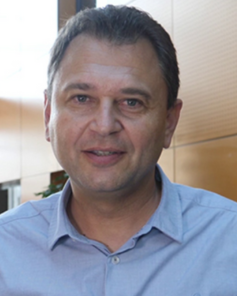
Prof. Stephane Parola
ENS Lyon, France
Stephane Parola is Professor in Chemistry at the Chemistry Laboratory of the “École Normale Supérieure” (ENS) of Lyon (France). He received in 1996 a PhD from the University of Nice-Sophia Antipolis (France) and Chalmers University of Technology (Sweden) where he spent 3 years (1992-1995). After a one-year researcher position at the university of Nice Sophia Antipolis (1996), he got an assistant professor position at the University of Lyon (1997) where he was appointed full professor in 2005. His research areas are in the fields of molecular precursors of materials, sol-gel science, chemistry of Inorganic and Hybrid Organic/Inorganic (nano)materials, colloidal chemistry, thin films and monoliths, synthesis and surface modification of nanomaterials, properties of materials (optics, photonics, photocatalysis). He is interested in applications related to photonics, environment or medicine. In particular, he designed original solid-state non-linear optical filters, explored the chemistry and properties of plasmonic nanomaterials and plasmonic glasses, photocatalytic materials, water depollution, medical imaging technologies, or investigated strategies towards colloids and particles assemblies for optical applications. He is currently Vice-President of the École Normale Supérieure of Lyon.
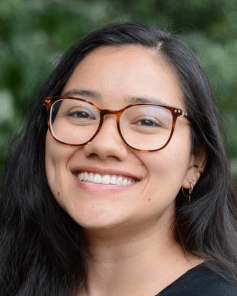
Dr. Gail Vinnacombe-Willson
CIC biomaGUNE, Spain
Gail A. Vinnacombe-Willson obtained her Ph.D in Materials Chemistry from the University of California, Los Angeles, in the United States in 2022, with her thesis focusing on soft-lithography and colloidal and in situ synthesis of plasmonic nanostructures. After completing her PhD, she joined the group of Prof. Luis Liz-Marzán at CIC biomaGUNE, Spain, under the ERC advanced grant 4D bioSERS, where she developed and applied gold-nanoparticle/hydrogel nanocomposites for SERS sensing in 3D cancer models. Currently, she is an MSCA postdoctoral fellow (project PLASMOSTEMFATE), studying the differentiation of neural stem cells in microfluidic chips.
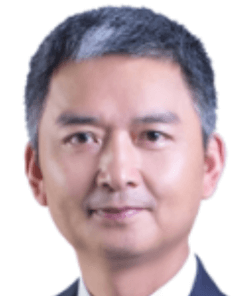
Prof. Qiangbin Wang
Chinese Academy of Sciences, China
Dr. Qiangbin Wang is a full professor at Suzhou Institute of Nano-Tech and Nano-Bionics (SINANO), Chinese Academy of Sciences (CAS). He earned his Ph.D. from East China University of Science and Technology in 2002. He worked as a Postdoc Associate and later as an Assistant Research Professor at Arizona State University from 2004 to 2008. In July 2008, he joined SINANO as a professor focusing on the development of new QDs with fluorescence in the second near-infrared window (NIR-II, 900-1700 nm), NIR-II fluorescence imaging instruments and their translational biomedical applications in cancer theranostics, regenerative medicine and neuroscience, etc. Dr. Wang currently serves as the director of SINANO, and also the director of the Key Laboratory of Nano-Bio Interface, CAS.
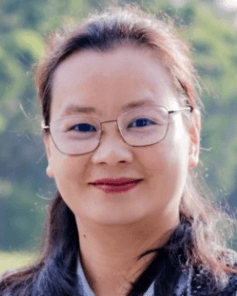
Prof. Yuling Wang
Macquarie University, Australia
Yuling Wang is a professor of chemistry and an Australian Research Council (ARC) Future Fellow at Macquarie University in Australia. She is also a Fellow of the Royal Society of Chemistry (FRSC). Yuling completed her PhD at the Chinese Academy of Sciences in 2009. She was then awarded an Alexander von Humboldt (AvH) fellowship in 2010 and a German Research Foundation (DFG) Grant in 2012. In 2014, she received the ARC Discovery Early Career Researcher Award (DECRA). Since 2017, she has established her group with 5 research fellows and 12 PhD students. Her research focuses on platform technology that utilizes rationally designed plasmonic nanomaterials and surface-enhanced Raman scattering (SERS) for biomarkers sensing, aiming to enhance in vitro diagnostics and personalized medicine.
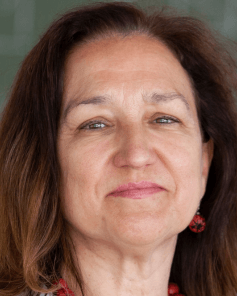
Prof. Nerea Zabala
University of the Basque Country, UPV/EHU, Spain
Nerea Zabala received her B.S. degree and Ph.D in Physics from the University of the Basque Country (UPV/EHU). She worked as a postdoctoral fellow at the Helsinki University of Technology (Aalto), where she was appointed a visiting professor in 2003. She joined the Department of Electricity and Electronics of the UPV/EHU as an Associate Professor in Applied Physics, and was promoted to Full Professor in 2022. Her research activity is developed in the Theory of Nanophotonics group at the Materials Physics Center, CFM (joint center CSIC-UPV/EHU) in San Sebastian. She is also an associate researcher of Donostia International Physics Center, DIPC.
She is interested in the electronic and optical properties of nanostructures and nanomaterials, and has contributed to theoretical research on plasmonics in optical and electron (EELS) spectroscopic. Her current research is focused on the behaviour of light in plasmonic nanocavities and plasmonic metasurfaces for the improvement of molecular spectroscopies and the optimization of nanophotonic devices.

Prof. Catherine Murphy
Department of Chemistry, University of Illinois Urbana-Champaign, USA
Catherine J. Murphy is the Larry R. Faulkner Endowed Chair in Chemistry and current Head of the Department of Chemistry at the University of Illinois Urbana-Champaign (UIUC). Dr. Murphy earned two B.S. degrees, one in chemistry and one in biochemistry from UIUC in 1986, and her Ph.D. in chemistry from the University of Wisconsin, Madison, in 1990. From 1990-1993 she was an NSF then NIH postdoctoral fellow in chemistry at the California Institute of Technology. From 1993-2009, she was on the faculty of chemistry and biochemistry at the University of South Carolina. During this period, Murphy began her studies of colloidal inorganic nanomaterials, first developing aqueous syntheses of quantum dots, before moving on to her signature materials, gold nanorods. She and her research group have published 300 papers, and she has delivered over 450 invited talks, on the synthesis, characterization, biological applications and environmental implications of gold nanocrystals. Murphy’s honors include the 2025 NANOSMAT Prize, the 2022 Centenary Prize of the Royal Society of Chemistry, the 2020 ACS Award in Inorganic Chemistry, the 2019 Remsen Award, the 2019 Linus Pauling Medal, and the 2019 MRS Medal. She is a member of the U.S. National Academy of Sciences and a member of the American Academy of Arts and Sciences. Dr. Murphy is an Associate Editor for Chemistry, and a member of the Editorial Board, for the Proceedings of the National Academy of Sciences. She is a member of the Board of Directors of the Research Corporation for Science Advancement, the Scientific Advisory Board of the Welch Foundation, and Dow’s Science and Technology Advisory Council. Dr. Murphy is a coauthor of the best-selling general chemistry textbook Chemistry: The Central Science, from the 10th to the present 15th edition.